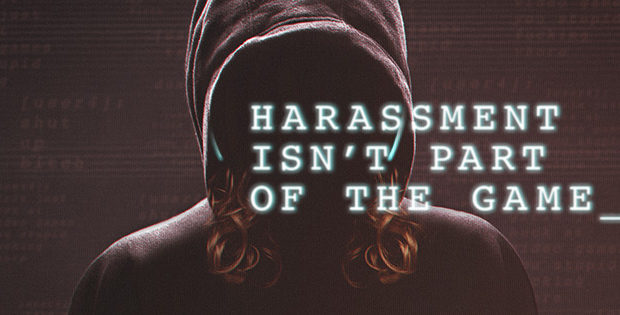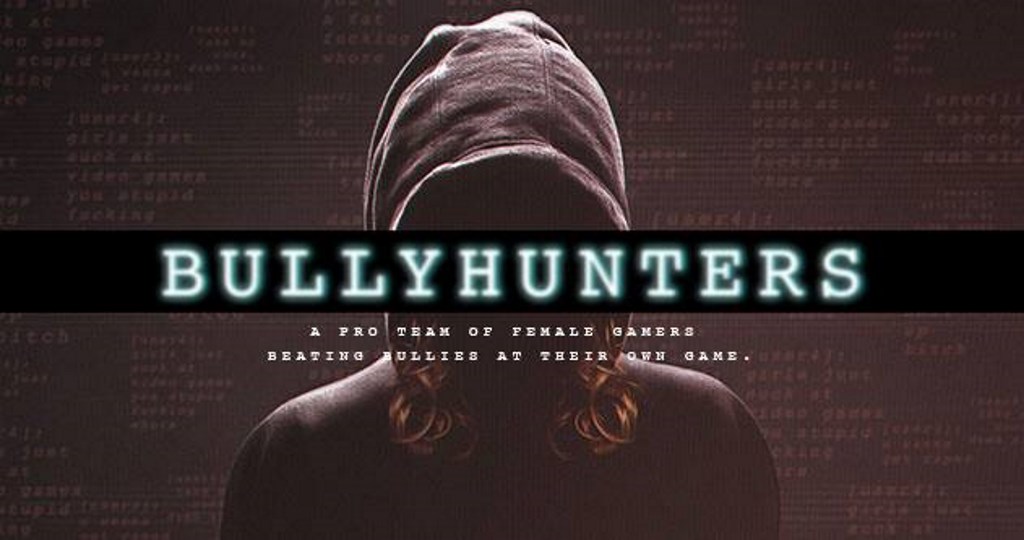Bully Hunters anti-harassment campaign shuts down as criticism mounts
The anti-abuse initiative was a goat rodeo, a gong show, and a train wreck, all in one.

Bully Hunters was unveiled last week as a program aimed at combating the harassment and abuse of women in online games, a worthwhile idea that raised eyebrows with its methods. It was billed as a "vigilante in-game hit squad" made up of elite women gamers who would "beat bullies at their own game." Basically, players encountering abuse in CS:GO were encouraged to contact the Bully Hunters, who would then send one of their players to "infiltrate" the game and deliver righteous justice through a righteous ass-kicking.
Noble goal, dubious process, and unsurprisingly it all went about as wrong as it possibly could have. Following allegations of toxic behavior by Bully Hunters members themselves and the resurfacing of tweets by representative streamer Natalie "ZombiUnicorn" Casanova containing homophobic and abusive language, sponsors and supporters quickly pulled out, the Bully Hunters website and social media pages went dark, and today the company behind it pulled the plug on the whole thing.

"We’re well aware of the many faults with BullyHunters. We hear you guys, and we agree."
- Steelseries statement
"BullyHunters pitched us with a simple idea - let’s work together to fight online harassment. And because we believe that’s a noble cause, we supported it," Steelseries said in a statement announcing the end of its partnership with the group the day after it debuted. "It’s now clear that we didn’t do a good job in understanding exactly what we were supporting. And we’re sorry for that."
Vertagear issued a similar statement, also on April 14, saying that anti-cyberbullying efforts are a worthy cause, and that it had hoped to draw attention to the problem and encourage the growth of a less toxic gaming environment for everyone.
"However, the information that we received before the start of the campaign not only contradicted the execution of it, but we discovered after the fact that it was sorely lacking," Vertagear wrote. "Our biggest mistake was not thoroughly vetting the details of the campaign to ensure that the execution would be up to the proper standards expected, and we apologize for that and the horrendous results of this event."
The Diverse Gaming Coalition weighed in as well, citing Casanova's Twitter history as specifically problematic. She has previously used what could charitably be called "combative" language in tweets, and a clip of her using a homophobic slur during a livestream was also shared to Twitter.
"Various tweets show wrongdoing by host, Zombi Unicorn, which are actions that Diverse Gaming Coalition does not condone, although she was not solely to blame for the Bully Hunters initiative as a whole," The Diverse Gaming Coalition wrote. And while it was under the impression that the Bully Hunters would continue, it "does not align with our mission and vision statement as a non-profit. Because of this, we are deciding as of now, we are dropping as a partner from the Bully Hunters initiative."
Keep up to date with the most important stories and the best deals, as picked by the PC Gamer team.
Casanova addressed her use of toxic language in a statement in which she said that, "due to the overwhelming amount of harassment, toxicity, hate & threats," she would be stepping away from the project.
Statement on my involvement with #BullyHunters as a host & consultant for experience with harassment:Due to the overwhelming amount of harassment, toxicity, hate & threats(I don't mean the legitimate concerns/criticisms voiced in appropriate manners)I'm taking a break. pic.twitter.com/qJQ0pJE1KUApril 13, 2018
She also suggested that she too was misled by the campaign, specifically with regard to the statistics about abuse that it quoted. "Projections based on market size estimate of 32.7 million female console gamers in the US by YouGov, and 9.6 percent reported that they quit playing a certain game permanently because of harassment as reported by International Business Times," she wrote.
"Those statistics were extrapolated by Bully Hunters to express a point that sexual harassment has negatively effected more women this way. I used those stats from their posts and was told the sources would be listed on the site. I also didn't feel qualified enough to discuss them in depth, so I noted to watch the event to hear the licensed psychologist and guests discuss it better."
The cumulative effect of the damage was simply too much to overcome, and marketing agency FCB Chicago, which launched the program, told Polygon that it is over.
"As this effort did not live up to our high standards, we decided to end this program, but hope the conversation it has raised around ending harassment in gaming continues," global chief communications officer Brandon Cooke said. He added that other involved organizations provided no financial support or sponsorship.
"In most cases they were just supporting the cause. SteelSeries helped connect us with a few gamers and provided some headsets for the live event. That’s all," he said. "One [host was paid], but the other was not."
Despite the outcome and the deluge of personal harassment she's experienced as a result, Casanova defended the goals of the project, if not the way it went about achieving them. "Love it or hate it, it did its job," she said. "It’s brought a lot of attention to this. It’s opened up the discussion to more people. Yeah, it’s brought a lot of trolls, but it’s opened the discussion."

Andy has been gaming on PCs from the very beginning, starting as a youngster with text adventures and primitive action games on a cassette-based TRS80. From there he graduated to the glory days of Sierra Online adventures and Microprose sims, ran a local BBS, learned how to build PCs, and developed a longstanding love of RPGs, immersive sims, and shooters. He began writing videogame news in 2007 for The Escapist and somehow managed to avoid getting fired until 2014, when he joined the storied ranks of PC Gamer. He covers all aspects of the industry, from new game announcements and patch notes to legal disputes, Twitch beefs, esports, and Henry Cavill. Lots of Henry Cavill.

